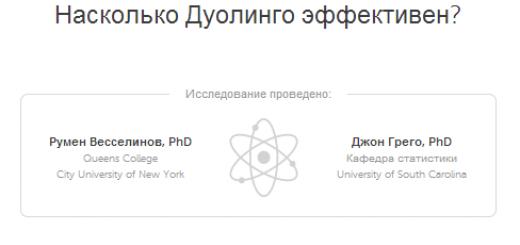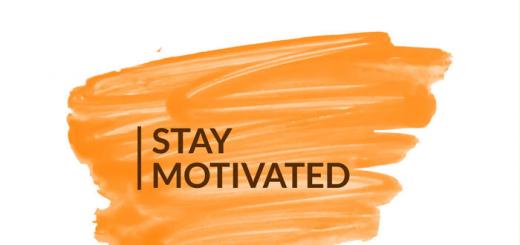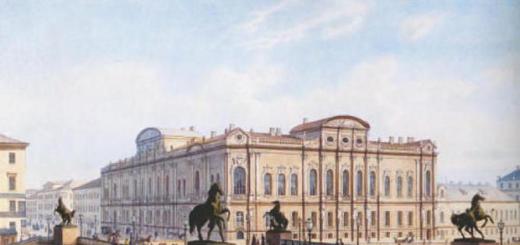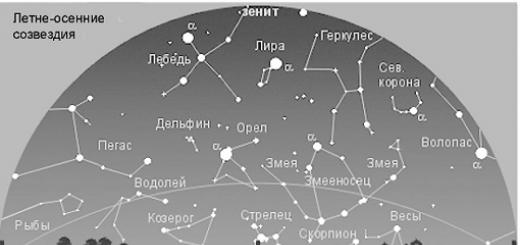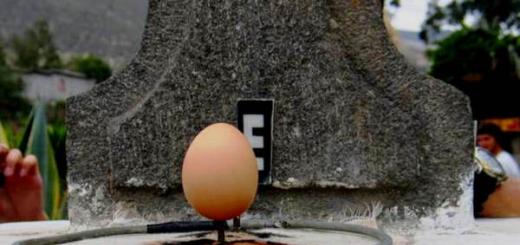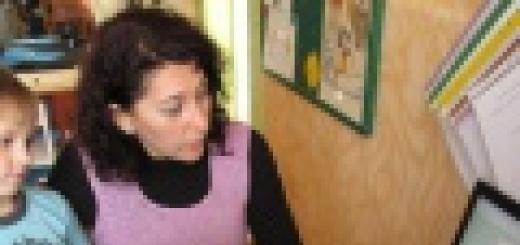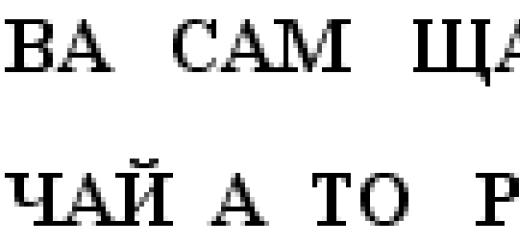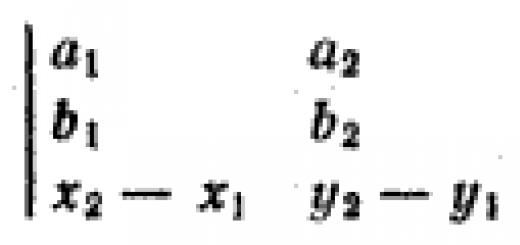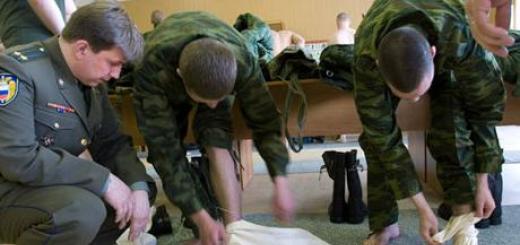1 option
1. In Italy, unlike Greece:
1) rarely rained
2) the land was barren
3) were low, gently sloping mountains
4) there were a lot of minerals
2. Rome became the master of the entire Mediterranean after:
1) the conquest of Egypt
2) the expulsion of Tarquinius the Proud
3) the end of the war with King Pyrrhus
4) the end of the second war between Rome and Carthage
3. In the Roman state inIVin. BC.:
1) emperors had unlimited power
2) The People's Assembly was the highest organ of power
3) for the performance of public positions paid
4) The Senate in its actions reported to the People's Assembly
4. In the Roman Republic, the right of veto was possessed by:
1) senators
2) emperors
3) consuls
4) people's tribunes
5. The Roman Varro called slaves "talking" tools, because the Romans:
1) treated slaves as things
2) treated slaves with respect
3) forced the slaves to sing while working
4) refused to use plows, hoes and shovels
1) departure of the plebeians from Rome
2) the defeat of Rome in the war with Carthage
3) the weakening of the military power of Rome
4) lack of slaves in Rome and their high cost
7. What events are associated with the dates of 509g. BC, 49 BC.?
1) with the military victories of the Romans
2) with the Olympic Games
3) with the creation of cultural monuments
4) with changes in the state structure
8. The order of government, in which the state is governed by officials elected for a certain period, is called:
1) empire 2) province 3) power 4) republic
9. Change in the attitude of the Roman authorities towards Christianity inIVin. BC. was associated with:
1) the death of Jesus Christ
2) calling Christians to rebellion
3) the coming to power of Emperor Nero
4) the requirement of the Christian church to be submissive to the authorities
10. Which of the Roman emperors was called "an actor on the imperial throne"?
The voice gets stuck in my throat, and as I dictate, sobs interrupt my recitation. The city that took over the whole world was itself taken; moreover, famine preceded the sword, and only a few of the townspeople survived to become captives.
1) The destruction of Carthage by the Romans
2) the capture of Rome by Hannibal
3) the capture of Rome by Alaric
4) the siege of the Gauls of Rome
12. An architectural monument of Ancient Rome is:
1) Parthenon 2) Troyan's column 3) Pharos Lighthouse 4) Pyramid of Cheops
Part B
IN 2. What terms are used to refer to the dependent population in the Roman state? Indicate two correct answers.
1) columns
2) apostles
3) "slaves with huts"
4) patricians
5) legionnaires
A) the Battle of Cannes
B) the uprising of Spartacus
B) the birth of the city of Rome
D) transfer of the capital of the Roman state to Constantinople
Final test on the topic "Ancient Rome"
Option 2
1. In Italy, as in Greece:
1) warm climate
2) extensive pastures
3) high, steep mountains
4) deep, navigable rivers
2. Rome established its rule over Italy after:
1) the end of the war with King Pyrrhus
2) the destruction of Corinth and Carthage
3) the expulsion of Tarquinius the Proud
4) suppression of the uprising of Spartacus
3. In the Roman state inIin. AD
1) the power of the consuls was inherited
2) emperors had unlimited power
3) there was a republican form of government
4) laws were adopted after discussion in the People's Assembly
4. In the Roman Republic, the command of the troops was assigned to
1) senate 2) emperor 3) consuls 4) people's tribunes
5. Slavery reached its highest development in Ancient Rome, because:
1) slaves in Rome were very expensive
2) slaves were treated very well in Rome
3) slaves in Rome were used in all sectors of the economy
4) slaves in Rome occupied the highest government positions
6. The reason for the adoption of the land law of the Gracchi brothers:
1) strengthening the power of the Senate
2) the invasion of Hannibal's troops
3) the ruin of the farmers of Italy
4) reduce the number of slaves
7. What events are associated with the dates of 133g. BC, 313 BC.?
1) slave uprisings
2) the adoption of important laws
3) the military victories of the Romans
4) the creation of cultural monuments
8. The order of government, in which the state is solely controlled by one person, is called:
1) empire 2) province 3) colony 4) republic
9. In the first centuries of our era, Christianity attracted the poor and slaves because:
1) was distributed all over the world
2) enjoyed the support of the Roman emperors
3) called on the disadvantaged people to rise in revolt
4) promised the kingdom of God for those who suffered and were humiliated
10. The Roman emperor, recognized by his compatriots as the best of the emperors:
1) Konstantin
2) Trajan
11. Read the passage from the document and indicate the event in question.
Gizeric "..." having loaded onto the ships a huge amount of gold and other royal treasures, sailed "..." taking copper and everything else from the palace. He also plundered the temple of Capitoline Jupiter and removed half of the roof from it. This roof was made of the best copper and covered with a thick layer of gold, presenting a majestic and marvelous sight. Of the ships that Gizeric had, one that carried the statues is said to have perished...
1) the struggle of Caesar's supporters with the Republicans
2) the destruction of Carthage by the Romans
3) the capture of Rome by Hannibal
4) the capture of Rome by the vandals
12. The sight of Ancient Rome was:
1) Parthenon
2) Pharos lighthouse
3) Pantheon
Part B
IN 1. Match the statement with its author.
IN 2. Which two of the following concepts are the names of the main positions in the Roman state?
2) patrician
3) people's tribune
4) senator
5) legionnaire
AT 3. Put the following events in the correct order.
1) the capture of Rome by the Goths
2) the reign of Octavian Augustus
3) adoption of the land law of Tiberius Gracchus
4) the division of the Roman Empire into two states
History test on the topic: "Ancient Rome"
Option number 1.
- Who, according to legend, was the first king of Rome?
A) Remus, B) Romulus, C) Numitor.
2. Who are patricians?
A) descendants of the founders of Rome, B) descendants of the Etruscan tribe,
C) the descendants of Greek colonists in Italy.
- Officers elected in Republican Rome each year:
A) senators B) consuls C) emperors
4. What tribe lived on the banks of the Tiber River, where Rome was founded?
A) Gauls, B) Etruscans, C) Latins.
5. What were the areas conquered by Rome called?
A) "our sea", B) provinces, C) the kingdom of the barbarians.
6. Priestesses of the goddess of fire and hearth:
A) augurs, B) vestals, C) haruspices.
7. What is a triumph?
A) the construction of a triumphal arch, B) the solemn entry into Rome of the commander - the winner, C) a solemn divine service in Rome.
8. People's tribune, speaking in defense of the farmers of Italy:
A) Tiberius Gracchus, B) Cato, C) Scipio.
9. The people's tribunes had the right to pronounce the word "veto" in the Senate. What did it mean?
A) “welcome”, B) “allow”, C) “forbid”.
10. Military unit of the Roman army:
A) phalanx, B) legion, C) praetorium.
11. The Roman senator who ended his every speech in the Senate with the words "Carthage must be destroyed."
A) Cato, B) Scipio, C) Gracchus.
12. What happened in 509 B.C. e.?:
A) Rome was founded B) a republic was established in Rome
C) an empire was established in Rome.
13. What spectacle did the Romans prefer to all others?
A) theatrical performances, B) sports competitions, C) gladiator fights.
14. Where in Rome were hopelessly ill slaves taken to die?
A) to the island of Sicily, B) to an island on the Tiber River, C) to the Field of Mars.
15. How did the second war with Carthage end?
A) Rome lost possessions in Sicily and southern Italy,
B) Rome became the master in the Eastern Mediterranean,
C) Carthage lost all possessions outside of Africa.
16. What were the names of the disciples of Jesus Christ?
A) “sons of light”, B) bishops, C) apostles.
17. Motherland of Jesus Christ:
A) Greece, B) Palestine, C) Egypt.
18. The eastern neighbor of the Roman state, which Rome could not conquer in any way:
A) Egypt, B) Carthage, C) Parthia.
History test on the topic "Ancient Rome"
Option number 2.
- Mother of Remus and Romulus, according to ancient Roman legend:
A) she-wolf, B) Vesta, C) Rhea Sylvia.
2. Who received the honorary nickname "emperor" in republican Rome?
A) senators, B) generals, C) people's tribunes.
3. Roman Warrior:
A) legionnaire B) gladiator C) dictator
4. Who in Republican Rome was in charge of the treasury and negotiated with other states?
A) the Senate, B) people's tribunes, C) the People's Assembly.
5. Who are the plebeians?
A) slaves who lived in Rome, B) residents who cannot speak Latin,
C) residents of Rome, immigrants from other regions of Italy.
6. Roman god, considered the guardian of Rome:
A) Romulus, B) Mars, C) Jesus Christ.
7. Greek city, destroyed to the ground by the Romans:
A) Corinth B) Carthage C) Athens
8. How is the word "republic" translated from Latin?
A) "power of the people", B) "power of the nobility", C) "common cause".
9. What happened in 216 BC e.?
A) the Battle of Cannae, B) the founding of Rome, C) the coming to power of Caesar.
10. Where did the Romans meet to pass laws?
A) in the amphitheater, B) in the Pantheon, C) on the Champ de Mars.
11. What is the essence of the land law of the Gracchi (133 BC)?
A) "attaching" columns to the ground, B) the introduction of payment for slaves for the use of land,
B) redistribution of land.
12. How many consuls were elected annually in Rome?
A) one, B) two, C) three hundred.
13. Roman commander who defeated Hannibal near the city of Zama (202 BC)
A) Titus Livius, B) Crassus, C) Scipio.
14. Slaves who received plots of land for use:
A) columns, B) “slaves with a hut!”, C) everyone who lived outside the city of Rome.
15. Whose interests were represented by the people's tribunes in the Roman Senate?
A) patricians, B) plebeians, C) Roman provinces.
16. A disciple of Jesus Christ who betrayed him for 30 silver coins:
A) Peter, B) Paul, C) Judas.
17. Roman emperor, under whom the persecution of Christians began:
A) Nero, B) Octavian August, C) Constantine.
18. Event in Rome in 64 AD. e., after which the persecution of Christians began:
A) the assassination of Caesar, B) the fire of the city of Rome, C) the execution of Seneca.
Answers for grade 5
option number 1
Answers for grade 5
option number 2
1. in
2. b
3. a
4. a
5. in
6. b
7. a
8. a
9. a
10. in
11. in
12. b
13. in
14. b
15. b
16. in
17. a
Test on the history of Ancient Rome for students in grade 5 with answers. The test includes 2 options, each option consists of 10 tasks.
1 option
1.
Republican order took shape in Rome at the beginning of the 6th century BC, when the Roman citizens expelled the last king.
1) true
2) wrong
2. Outstanding Roman poet
1) Tacitus
2) Seneca
3) Virgil
3. Enter the wrong answer. Caesar was a contemporary
1) Pompeii
2) Krassa
3) Spartacus
4) Scipio
4.
A) the battle of Cape Promotions
B) land laws of the Gracchi brothers
C) the destruction of Carthage
D) the conquest of the Dacians
D) the reign of Trajan
5.
A) Capitol Hill
B) Big circus
B) pantheon
D) terms
Meaning
1) Roman baths
2) temple of all gods
3) arena for horse racing
4) the area of Rome where the temples of Jupiter and Juno were located
6. The Roman scientist Varro argued that there are three types of tools for working fields (continue the list)
1) dumb (shovels, plows)
2) _______________
3) _______________
7. Trajan, Augustus, Constantine
1) these are Roman emperors
2) these are Roman emperors who won outstanding military victories
3) these are Roman emperors who brutally persecuted Christians
8. Find and indicate the number of the battle that is superfluous in this list. The most important battles of the wars of Rome and Carthage
1) Battle of Cannae
2) battle near the city of Zama
3) the battle at the foot of Vesuvius
9.
Slave labor was used in all areas of Roman society. They worked on estates, were engaged in crafts, served in the homes of the rich, were librarians, teachers, doctors, gladiators.
1) in fact, slaves worked only on estates and in the homes of the rich
2) in fact, even the poor had slaves
3) in fact, slaves could not be doctors, librarians, teachers
10. Read an extract from a historical document and indicate to whom these words belong.
"Even wild beasts have burrows and lairs, and those who fought and died for Rome have nothing but air and light!"
1) Tiberius Gracchus
2) Caesar
3) Spartacus
Option 2
1. Is the following statement true?
At the end of the 1st century BC. and at the beginning of the 1st century AD. Rome became an empire.
1) true
2) wrong
2. Eminent Roman historian
1) Cato
2) Patron
3) Titus Livius
3. Enter the wrong answer. Augustus was contemporary
1) Virgil
2) Anthony
3) Horace
4) Krassa
4. Arrange the following events in chronological order. Write the letters of the events in the correct order.
A) the destruction of Corinth
B) the second war between Rome and Carthage
C) the struggle between patricians and plebeians
D) the reign of Constantine
D) persecution of Christians in the Roman Empire
5. Establish a correspondence between the concept and its meaning.
A) a dictator
b) emperor
B) consul
D) legion
Meaning
1) combat unit of the Roman army
2) the highest official in the Roman Republic
3) the title of the commander in the days of triumph
4) an official endowed by the Senate with sole power
6. Outstanding commanders were called to fight the uprising of Spartacus (continue the list)
1) Krass
2) _______________
3) _______________
7. Goths, Vandals, Syrians, Gauls
1) representatives of these nationalities served in the Roman army under the last emperors
2) these are Germanic tribes
3) these are residents of countries that Rome never managed to turn into provinces
8. Find and indicate the number of the item that is superfluous in this list. The most important battles of the Roman legions with slaves during the uprising of Spartacus
1) the battle at the foot of Vesuvius
2) battles on the southern tip of Italy
3) Battle of Cape Promotions
9. Read the text and find the error in it.
The people's tribune Tiberius Gracchus obtained from the National Assembly the approval of the laws he proposed. The laws established that no one could own plots of state land larger than a certain size. The surplus was taken away and sold to the poor.
1) in fact, Tiberius Gracchus failed to convince the National Assembly to approve these laws
2) in fact, the surplus was given to the poor for free on the condition that they could not sell it
3) in fact, Tiberius Gracchus was a senator
10. Read an extract from a historical document and indicate the author of these lines.
“If we admit that Caesar destroyed freedom in Rome, then his body should be left without burial, and all his orders should be canceled.”
1) Anthony
2) Trajan
3) Brutus
Answers to the test on the history of Ancient Rome
1 option
1-1
2-3
3-4
4-VBADG
5-4321
6.
mooing (bulls)
speakers (slaves)
7-1
8-3
9-2
10-1
Option 2
1-1
2-3
3-4
4-VBADG
5-4321
6.
Pompeii
Lucullus
7-1
8-3
9-2
10-1
History test on the topic: "Ancient Rome"
Option number 1.
Who, according to legend, was the first king of Rome?
A) Remus, B) Romulus, C) Numitor.
2. Who are patricians?
A) descendants of the founders of Rome, B) descendants of the Etruscan tribe,
C) the descendants of Greek colonists in Italy.
Officers elected in Republican Rome each year:
A) senators B) consuls C) emperors
4. What tribe lived on the banks of the Tiber River, where Rome was founded?
A) Gauls, B) Etruscans, C) Latins.
5. What were the areas conquered by Rome called?
A) "our sea", B) provinces, C) the kingdom of the barbarians.
6. Priestesses of the goddess of fire and hearth:
A) augurs, B) vestals, C) haruspices.
7. What is a triumph?
A) the construction of a triumphal arch, B) the solemn entry into Rome of the commander - the winner, C) a solemn divine service in Rome.
8. People's tribune, speaking in defense of the farmers of Italy:
A) Tiberius Gracchus, B) Cato, C) Scipio.
9. The people's tribunes had the right to pronounce the word "veto" in the Senate. What did it mean?
A) “welcome”, B) “allow”, C) “forbid”.
10. Military unit of the Roman army:
A) phalanx, B) legion, C) praetorium.
11. The Roman senator who ended his every speech in the Senate with the words "Carthage must be destroyed."
A) Cato, B) Scipio, C) Gracchus.
12. What happened in 509 B.C. e.?:
A) Rome was founded B) a republic was established in Rome
C) an empire was established in Rome.
13. What spectacle did the Romans prefer to all others?
A) theatrical performances, B) sports competitions, C) gladiator fights.
14. Where in Rome were hopelessly ill slaves taken to die?
A) to the island of Sicily, B) to an island on the Tiber River, C) to the Field of Mars.
15. How did the second war with Carthage end?
A) Rome lost possessions in Sicily and southern Italy,
B) Rome became the master in the Eastern Mediterranean,
C) Carthage lost all possessions outside of Africa.
16. What were the names of the disciples of Jesus Christ?
A) “sons of light”, B) bishops, C) apostles.
17. Motherland of Jesus Christ:
A) Greece, B) Palestine, C) Egypt.
18. The eastern neighbor of the Roman state, which Rome could not conquer in any way:
A) Egypt, B) Carthage, C) Parthia.
19. Correctly correlate dates and related events:
1) 753 BC; a) uprising of Spartacus
2) 216 BC; b) Caesar's seizure of power;
3) 74 BC; c) the foundation of Rome;
4) 49 BC; d) the battle of Cannae.
A) foundation of the republic in Rome; b) the assassination of Caesar; c) the battle of Cannae? How many years separate an event that happened before others from what happened after others?
History test on the topic "Ancient Rome"
Option number 2.
Mother of Remus and Romulus, according to ancient Roman legend:
A) she-wolf, B) Vesta, C) Rhea Sylvia.
2. Who received the honorary nickname "emperor" in republican Rome?
A) senators, B) generals, C) people's tribunes.
3. Roman Warrior:
A) legionnaire B) gladiator C) dictator
4. Who in Republican Rome was in charge of the treasury and negotiated with other states?
A) the Senate, B) people's tribunes, C) the People's Assembly.
5. Who are the plebeians?
A) slaves who lived in Rome, B) residents who cannot speak Latin,
C) residents of Rome, immigrants from other regions of Italy.
6. Roman god, considered the guardian of Rome:
A) Romulus, B) Mars, C) Jesus Christ.
7. Greek city, destroyed to the ground by the Romans:
A) Corinth B) Carthage C) Athens
8. How is the word "republic" translated from Latin?
A) "power of the people", B) "power of the nobility", C) "common cause".
9. What happened in 216 BC e.?
A) the Battle of Cannae, B) the founding of Rome, C) the coming to power of Caesar.
10. Where did the Romans meet to pass laws?
A) in the amphitheater, B) in the Pantheon, C) on the Champ de Mars.
11. What is the essence of the land law of the Gracchi (133 BC)?
A) "attaching" columns to the ground, B) the introduction of payment for slaves for the use of land,
B) redistribution of land.
12. How many consuls were elected annually in Rome?
A) one, B) two, C) three hundred.
13. Roman commander who defeated Hannibal near the city of Zama (202 BC)
A) Titus Livius, B) Crassus, C) Scipio.
14. Slaves who received plots of land for use:
A) columns, B) “slaves with a hut!”, C) everyone who lived outside the city of Rome.
15. Whose interests were represented by the people's tribunes in the Roman Senate?
A) patricians, B) plebeians, C) Roman provinces.
16. A disciple of Jesus Christ who betrayed him for 30 silver coins:
A) Peter, B) Paul, C) Judas.
17. Roman emperor, under whom the persecution of Christians began:
A) Nero, B) Octavian August, C) Constantine.
18. Event in Rome in 64 AD. e., after which the persecution of Christians began:
A) the assassination of Caesar, B) the fire of the city of Rome, C) the execution of Seneca.
19 The brothers Tiberius and Gaius Gracchi became famous for:
a) they freed the slaves c) established an empire;
b) adopted a land law; d) captured Gaul.
20. Complete tasks with a time line.
Mark the following events on the timeline:
A) the foundation of an empire in Rome; b) the beginning of the reign of Trajan; c) the destruction of Carthage? How many years separate an event that happened earlier than others from an event that happened later than others?
21. Before you is an image .... what event in the history of Ancient Rome is it dedicated to?

Answers for grade 5
option number 1
Answers for grade 5
option number 2
1. in
2. b
3. a
4. a
5. in
6. b
7. a
8. a
9. a
10. in
11. in
12. b
13. in
14. b
15. b
16. in
17. a

